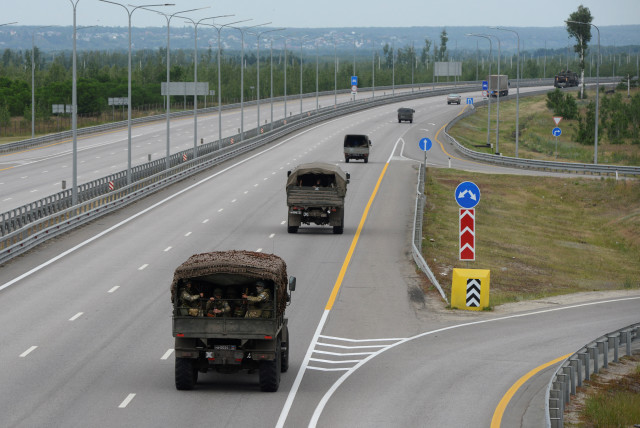Utilizing economic power can cause societal turmoil - opinion

Economic power was used as a tool to further an ideology of hatred and destruction. This highlights the moral blind spots that existed within Ordoliberalism under the Nazi rule.
When we think of the Holocaust, we think of the tragic murder of 6 million Jewish people, millions of other innocent individuals, and the stories of survivors. However, we probably don’t often consider the role of economics. While the primary factors behind the Holocaust are well-known, let’s explore the influence of broader societal factors, including economic policies. This correlation is known as Ordoliberalism.
According to online Financial Falconet, “The term entails that the state must create a proper legal environment for the economy and maintain a healthy level of competition through measures that adhere to market principles.” The theory emphasizes the importance of a competitive market economy regulated by a strong state. It is a phenomenon where economics and politics coincide, which we often forget or choose to ignore.
To examine this, let’s go back to 1929. Germany’s economy was in a dire situation, due to a worldwide stock market crisis that led to a recession globally. Why did this happen? It was the aftermath of World War I. Germany faced severe financial reparations and territorial losses. Unemployment increased by 50%, and the expected foreign direct investment from the United States did not materialize due to the global economic crisis.
Therefore, when the Nazi party took over, they applied the theory of Ordoliberalism to reshape the economy. They believed that strong state control and fair competition would fix it and lead to economic stability. The Nazi party implemented several policies to enhance the economy, aiming to make Germany self-sufficient. However, as their plans succeeded in boosting the economy, their morals and consideration for human rights were left far behind.
Overall, the implementation of economic policies went hand in hand with laws against ethnicities or minorities in the country. State control over industries, discriminatory legislation, and the confiscation of assets from those not deemed “German” started as a means to help the economy. However, it was these policies that ultimately led to the “Final Solution.”
Economics as a tool to further ideology
Economic power was used as a tool to further an ideology of hatred and destruction. This highlights the moral blind spots that existed within Ordoliberalism under the Nazi rule. However, if we have learned anything from the past it is that history can repeat itself.
This should alert us to the impact that the unreasonable application of economic theories can endanger society, beyond the economy. The latter theories should not solely exist but should be introduced together with policies designed to maintain human rights, and the well being of citizens at the forefront.
Today, as the economy is receding globally due to the impact of COVID-19 and the war in Ukraine it is important to not only understand history but to understand how by enhancing an economy, one can cause societal turmoil. We have a duty to pay attention to all different aspects of society and help ensure a safer future.
The Holocaust taught us many things and I believe it is important to look back at the dark days of the past in order to learn all the possible lessons – to truly create a brighter future.
The writer is originally from Manchester, England, and is currently an Argov Fellow at Reichman University. She also has an Instagram page dedicated to Holocaust remembrance and education @mymissiontoremember.
Jerusalem Post Store
`; document.getElementById("linkPremium").innerHTML = cont; var divWithLink = document.getElementById("premium-link"); if (divWithLink !== null && divWithLink !== 'undefined') { divWithLink.style.border = "solid 1px #cb0f3e"; divWithLink.style.textAlign = "center"; divWithLink.style.marginBottom = "15px"; divWithLink.style.marginTop = "15px"; divWithLink.style.width = "100%"; divWithLink.style.backgroundColor = "#122952"; divWithLink.style.color = "#ffffff"; divWithLink.style.lineHeight = "1.5"; } } (function (v, i) { });

